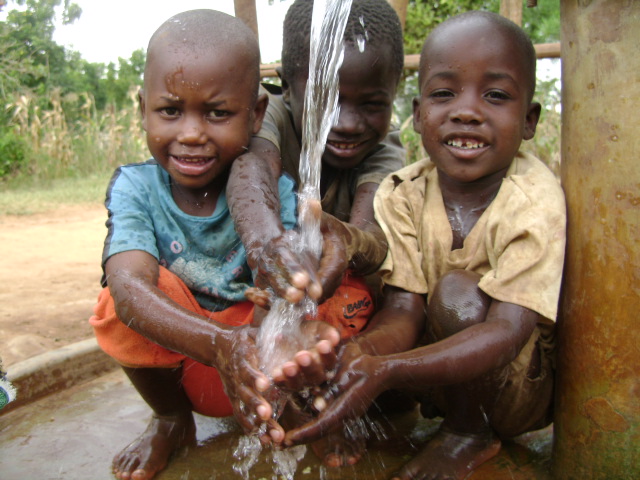
 With 3.4 million people dying every year from water-related issues, access to clean water is one of the defining global health challenges of our time. But lack of access to safe water also poses a serious threat to international peace and security, making developing countries vulnerable to disease and diminished economic power on the global stage.
With 3.4 million people dying every year from water-related issues, access to clean water is one of the defining global health challenges of our time. But lack of access to safe water also poses a serious threat to international peace and security, making developing countries vulnerable to disease and diminished economic power on the global stage.
Struggles over the “earth’s most precious resource” are rising steadily in many countries, and tackling this challenge has the attention from the White House to the CIA, Pentagon, USAID, and State Department. Water scarcity and global water security is quickly becoming a key development challenge and a topic requiring a whole-of-government solution.
What’s at stake? In its most recent Quadrennial Defense Review, the Pentagon emphasized, “Competition for resources, including energy and water, will worsen tensions in the coming years and could escalate regional confrontations into broader conflicts – particularly in fragile states.”
[blockquote attribution=”Rajiv Shah|USAID Administrator” align=”left”]”A sustainable and safe supply of water is necessary to the development and security of every nation.” [/blockquote]
In 2012, an assessment completed by the Intelligence Community said water problems would contribute to instability in countries important to U.S. national security in the next 30 years. The key finding was that, “During the next 10 years, many countries important to the United States will experience water problems – shortages, poor water quality, or floods – that will risk instability and state failure, increase regional tensions, and distract them from working with the United States on important U.S. policy objectives.”
USAID is working in several countries around the world on development solutions for safe drinking water and sanitation. Last year, they released a five-year strategy on water and development, which argues that “water is a potential source of conflict.” The strategy, among other things, seeks to mitigate “potential conflict around water scarcity at the local, national, and – with the U.S. Department of State – regional levels.” USAID also recently released a water and conflict toolkit in order to guide USAID’s programming on this issue in the coming years.
With around one-sixth of the world lacking access to clean water, this issue is too big for governments to tackle alone. NGOs such as World Vision and CARE are doing great work advancing clean water by constructing new and rehabilitating old water wells or building sanitation facilities. Creating sustainable solutions for safe drinking water is galvanizing smart power support through creative collaborations between government agencies, civil society, multilateral development banks, and the private sector.
And there’s only one company in the world active in all but two countries: Coca-Cola. Coca-Cola is bringing clean water to Africa and Latin America through a partnership with USAID, and according to Chairman and CEO Muhtar Kent, solutions come “by partnering across the golden triangle of business, government, and civil society.”
As part of that “golden triangle,” a wider group of agencies and companies have cooperated through the U.S. Water Partnership, which is a public-private partnership that mobilizes U.S. knowledge, expertise, and resources to address water challenges in the developing world. By utilizing these partnerships, U.S. public and private entities are working to eliminate water scarcity as a potential source of conflict.
On World Water Day this Saturday, we are reminded of the same objective on improving water security and access for the next generation.